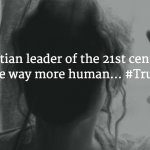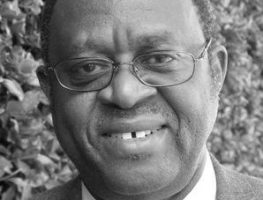I ashamedly confess to ruining a number of films for my friends over the years. A few instances come to mind. On one occasion, I accidentally unveiled to my congregation the ending of M. Night Shamalyan’s The Sixth Sense just following its release. Folks were ticked. I’ll refrain from repeating my sin here. Someone did the same to me at another point: explaining to me what happens in the Titanic just a day before going to the theatre myself. I went and saw it, but it was ruined.
What’s actually taking place when someone “ruins” a movie? What is being “ruined”? What do we mean by that?
For a movie to be “ruined” is not always the same as the outcome being unveiled in advance. I suspect that when Titanic was ruined for me, something much deeper was being stolen from me than the outcome of the movie. I’m a diligent amateur historian. I’m diligent enough to know the outcome of the whole historical Titanic story: the thing sank. Thus, when I ventured into a theatre and paid fifteen bucks to view a movie with an outcome I was already privy to, what was it I looking for? I knew what would happen in the end.
Hollywood isn’t successful because the world is searching for a good story. Good stories abound in book form around us all the time. In my opinion, the best stories humans have come up with are always the cheapest—found in stacks in the used book section at Goodwill—Shakespeare, Chaucer, and the Bible. If people were after good stories, Goodwill would explode with success. Hollywood is successful because we, the audience, endlessly lust for an experience of a good story. We pay top dollar for it. When given the choice between paying $5 for a used, battered copy in book form and paying $100 for the director’s cut version, we’ll always opt for the latter version of Lord of the Rings. The most exceptional achievements in movie making are the one’s that provide the most compelling experience of a story. I didn’t go see Titanic because I was ignorant of the outcome.
It’s Ruined!
Here’s my theory: a movie is “ruined” when someone unveils a film’s outcome without allowing space for that person to experience the film’s outcome on their own terms. A ruined film is outcome minus experience. And once ruined, a film can’t be un-ruined.
We ruin the gospel all the time. We describe the good story by not helping people experience the good story. Preaching the gospel isn’t simply telling people about the gospel. Preaching the gospel must, in some radical sense, entail helping others experience the gospel newly today.
By appealing to this dynamic call of a preacher’s vocation, Alan Lewis, just before his untimely death, wrote that we aren’t invited to simply tell the good news but share it as news. Preachers, as co-explorer, don’t simply present the facts of Scripture but the experience of the Scriptures. And the gospel. His insightful and balanced point must be re-heard today:
“It is consequently the test of good storytellers, writers, and actors whether they are able to preserve, for the sake of the audience, the full drama, suspense, or mystery, and hence the original meaning, or their material, even though they themselves know what is coming and have passed far beyond the unrepeatable experience of first-time hearing.”[1]
Don’t Ruin the Gospel
Preaching is about preserving that “first-time hearing” of the gospel, even for those in the audience who’ve heard it a million times before. One’s task remains to present the good news as news to the church—week in, week out, in season, out of season.
In practical terms, this is precisely why we must stop uttering the following sentence when we begin our sermons: “you’ve probably heard this story from the Bible before.” Hogwash. By doing that, you’ve managed to preach the good news as old news. First, many in the congregation haven’t heard the story. Second, for the one’s who have heard the story but don’t remember its outcome have quickly been offended by your underhanded comment. And thirdly, preaching isn’t the task of reminding God’s people of the outcome of the good news alone, but as well, a fresh, new, timely experience of the good news for today.
Good preaching doesn’t simply relay the fact that the tomb is empty but walks with the audience, God’s people, to the garden tomb to experience the fear and trepidation that Jesus is still missing!
Preaching, proclaiming, bearing witness to the gospel is an act of experience re-enactment. To bear witness by giving the outcome minus the experience of the empty tomb is a great way to “ruin” the gospel. We are tasked with providing a kind of travelogue with our people that covers the geographical contours of the grace of God. We don’t talk about grace; we walk its road together wherever it leads.
The gospel isn’t most powerful to me when I remember its facts. The gospel is most powerful to me when I experience it again for the first time. That’s what comprises the best preachers—they help me experience God’s love again, today. It is hard to imagine anyone could be different.
The gospel of Jesus isn’t the story of a celestial bellhop God who drops grace from the sky—it’s a story of a person who walked, breathed, ate, and burped. Only when we embrace our experience of that person, not just the descriptions, facts, and dogmas about that person, that we can count ourselves as disciples.
Father, may the gospel never be ruined in our eyes.
Dr. A.J. Swoboda is a pastor, writer, and professor in Portland, Oregon.
[1] Alan Lewis, Between Cross & Resurrection: A Theology of Holy Saturday, Eerdmans, 2001, 29






Missio Alliance Comment Policy
The Missio Alliance Writing Collectives exist as a ministry of writing to resource theological practitioners for mission. From our Leading Voices to our regular Writing Team and those invited to publish with us as Community Voices, we are creating a space for thoughtful engagement of critical issues and questions facing the North American Church in God’s mission. This sort of thoughtful engagement is something that we seek to engender not only in our publishing, but in conversations that unfold as a result in the comment section of our articles.
Unfortunately, because of the relational distance introduced by online communication, “thoughtful engagement” and “comment sections” seldom go hand in hand. At the same time, censorship of comments by those who disagree with points made by authors, whose anger or limited perspective taints their words, or who simply feel the need to express their own opinion on a topic without any meaningful engagement with the article or comment in question can mask an important window into the true state of Christian discourse. As such, Missio Alliance sets forth the following suggestions for those who wish to engage in conversation around our writing:
1. Seek to understand the author’s intent.
If you disagree with something the an author said, consider framing your response as, “I hear you as saying _________. Am I understanding you correctly? If so, here’s why I disagree. _____________.
2. Seek to make your own voice heard.
We deeply desire and value the voice and perspective of our readers. However you may react to an article we publish or a fellow commenter, we encourage you to set forth that reaction is the most constructive way possible. Use your voice and perspective to move conversation forward rather than shut it down.
3. Share your story.
One of our favorite tenants is that “an enemy is someone whose story we haven’t heard.” Very often disagreements and rants are the result of people talking past rather than to one another. Everyone’s perspective is intimately bound up with their own stories – their contexts and experiences. We encourage you to couch your comments in whatever aspect of your own story might help others understand where you are coming from.
In view of those suggestions for shaping conversation on our site and in an effort to curate a hospitable space of open conversation, Missio Alliance may delete comments and/or ban users who show no regard for constructive engagement, especially those whose comments are easily construed as trolling, threatening, or abusive.